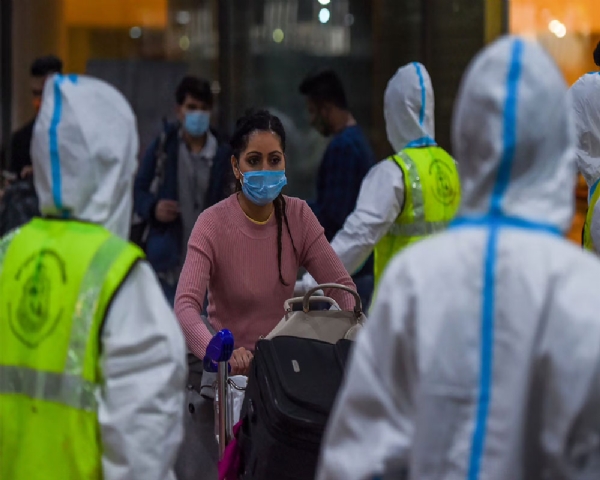14 more UK returnees test positive for new COVID-19 strain
Total Views |
New Delhi, December 30: A day after six people were found positive for the new strain of coronavirus, 14 more have tested positive for the who returned to India from the United Kingdom have tested positive for the new UK variant genome of SARS-CoV-2 so far.

The ministry said the mutated UK strain was detected in eight samples at the National Centre for Disease Control (NCDC), one at the National Institute of Biomedical Genomics (NIBMG), Kalyani (near Kolkata), one at the National Institute of Virology (NIV) Pune, seven at the National Institute of Mental Health and Neuro-Sciences Hospital (NIMHANS) Bengaluru, two at the Centre for Cellular and Molecular Biology (CCMB) in Hyderabad and one at the Institute of Genomics and Integrative Biology (IGIB), Delhi.
"The situation is under careful watch and regular advice is being provided to the states for enhanced surveillance, containment, testing and dispatch of samples to INSACOG labs," the ministry had said.
All officials and hospital staff in the state have been directed to take extra precautions amid the new Coronavirus Strain.
It should be noted that taking cognizance of the suggestions, the Centre has formed a genomic surveillance consortium, INSACOG, has been formed under the leadership of the NCDC of the Union ministry of health and family welfare.
Earlier, six UK returnees were found positive for the mutated UK variant SARS-CoV-2. They have been kept in single room isolation at designated health care facilities by respective state governments.
Apart from India, the presence of the new UK Variant has already been reported by Denmark, Netherlands, Australia, Italy, Sweden, France, Spain, Switzerland, Germany, Canada, Japan, Lebanon, and Singapore.
This new COVID strain which was first discovered in the United Kingdom in September is said to be 70% more transmissible from the novel coronavirus disease. This new COVID strain which was first discovered in the United Kingdom in September is said to be 70% more transmissible from the novel coronavirus disease.

